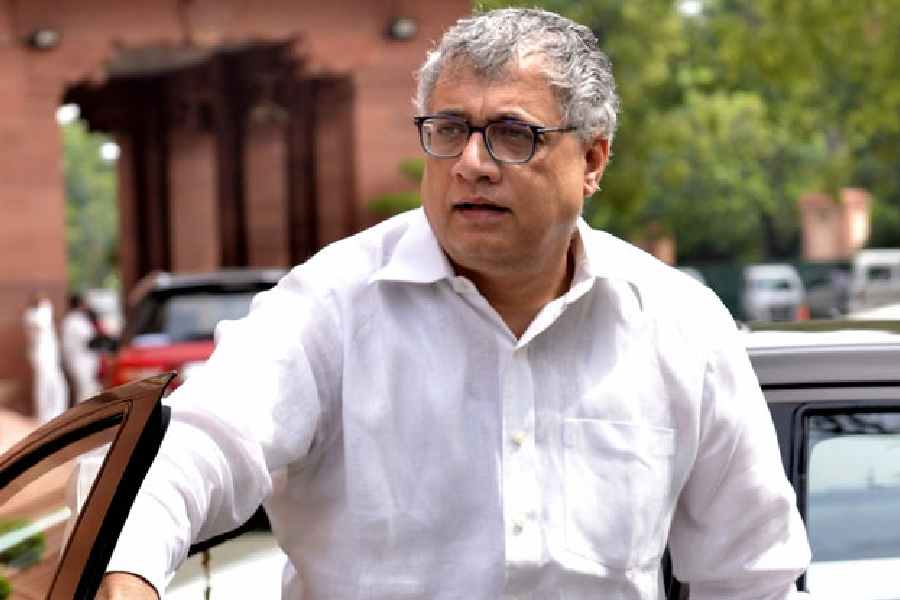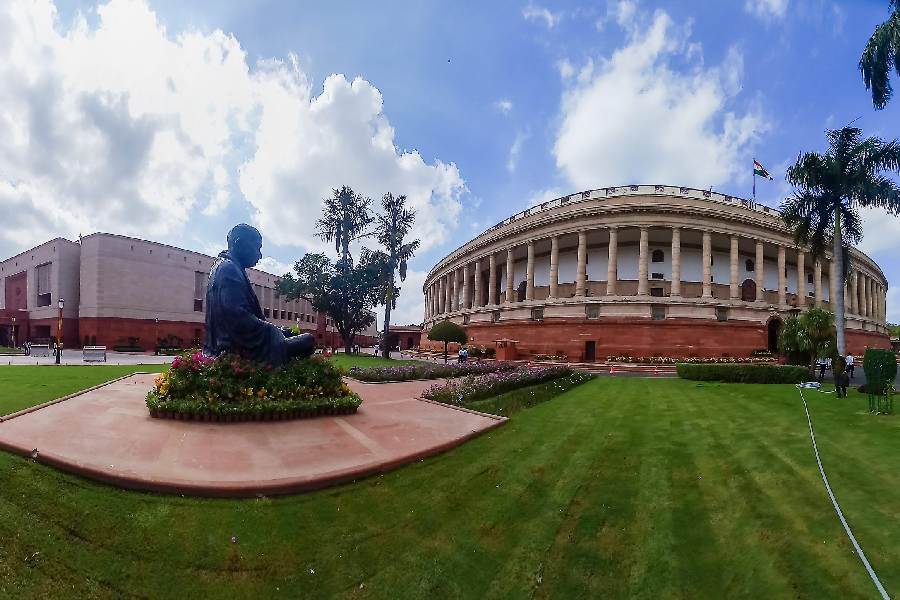The Rajya Sabha on Monday, the last day of proceedings in the present Parliament building, saw the Opposition get agitated about the decline of democracy.
A day before the session shifts to the new Parliament building, the Upper House
discussed “Parliamentary journey of 75 years starting from Samvidhan Sabha — achievements, experiences, memories and learnings”.
The Opposition parties expressed concern at the declining space for them and alleged a threat to democracy, federalism and secularism.
Leader of the House Piyush Goyal said the Rajya Sabha had started functioning from May 13, 1952, and since then witnessed fierce debates and issues being resolved through consensus.
Nehru’s role
Leader of the Opposition Mallikarjun Kharge said Winston Churchill had predicted doom for democracy in India but was proved wrong, thanks to the commitment to democracy shown by the Constitution’s framers and successive governments starting with Jawaharlal Nehru’s.
He said Babasaheb Ambedkar had asserted that the Congress had helped achieve consensus among the members of the Constituent Assembly on various issues.
Kharge said then Prime Minister Nehru would hear out his critics and Opposition members patiently. His ministers included some from the Opposition, such as Jana Sangh leader Syama Prasad Mookerjee.
“Nehru did not limit opportunities for anyone. Nehru said the absence of a strong Opposition means problems in the system. Now a strong Opposition means it should be weakened by using the ED (Enforcement Directorate),” Kharge said.
Modi’s speeches
He said Atal Bihari Vajpayee had as Prime Minister delivered 21 speeches in Parliament in six years, apart from giving the customary responses after the address by the President, while Manmohan Singh had spoken 30 times.
However, he said, Narendra Modi had spoken only on two occasions apart from the customary speeches in the past nine years.
Kharge said that 71 per cent of all bills had been sent to parliamentary panels for scrutiny between 2009 and 2014 (when the UPA was in power) but the figure fell to 27 per cent in the next five years and further to 13 per cent in the last four years.
He asked the Prime Minister to visit violence-torn Manipur and speak about the situation there.
Kharge also sought revocation of the suspensions of Aam Admi Party members Sanjay Singh and Raghav Chadha, penalised during the last session for unruly behaviour. However, Chairman Jagdeep Dhankhar evaded the issue.
No debates
Trinamul Congress member Derek O’Brien said Parliament was being run without proper debates.
“Give me back my Parliament which is not mocked and where national issues can be discussed, where policymaking is collaborative, not dictatorial, where farmers are guaranteed minimum support price, states are not deprived of funds for political reasons, where media owners are not enslaved by the party in power, where the government need not artificially increase GDP figures, where citizens do not die because of demonetisation, where statistics and data are not enemies of the State,” O’Brien said.
‘0.001 per cent’
CPM member John Brittas said that the Prime Minister was present in Parliament for 0.001 per cent of the total time it functioned.
“The fundamental principle of parliamentary democracy is the accountability of the executive to the legislature. Have you ever seen accountability of the executive to the legislature? What is the presence of the PM in Parliament? 0.001 per cent,” Brittas said.
He cited constitutional principles like liberty, justice, and equality, and said adherence to these principles had declined. “We have reached the bulldozer era. That is justice now. Liberty is manifested in sedition and the UAPA,” he said.
Brittas also lamented the abysmal representation of Muslims among lawmakers, the judiciary and the media.
Earlier, Trinamul member Nadimul Haque had cited the government’s failure to release funds to Bengal under the National Rural Employment Guarantee Act since December 2021. He said this flouted the principles of federalism.
MDMK member Vaiko said the “Sanatan forces” were threatening Muslims. “Sanatan forces are threatening them. In this way India will become like the Soviet Union,” he said.
‘Go to Pak’
Rashtriya Janata Dal member Manoj Jha took a dig at the government: “Ambedkar had said about preventing the tyranny of the majority. You tell us to go to Pakistan when we discuss and point out your mistakes.”
Members demanded reservation for women in Parliament and the state assemblies.
Dhankhar tried to reassure them and announced the names of eight Vice-Chairpersons, including four women, who would preside over the House when required.
“Fifty per cent members of the panel are women. I can assure you that it is a matter of time. The percentage may go up,” he said.
In his speech, Kharge said that women members made up about five per cent in the first Lok Sabha in 1952. At present, 14 per cent of Lok Sabha members and 10 per cent of Rajya Sabha members are women. He urged the government to enact reservation for women.
The UPA government had unsuccessfully tried to bring in a bill to provide 33 per cent reservation for women in Parliament and the Assemblies.
CPI complaint
CPI member Binoy Viswam later wrote on X that the Chair had promised his party a chance to speak but adjourned the House without honouring the commitment.












